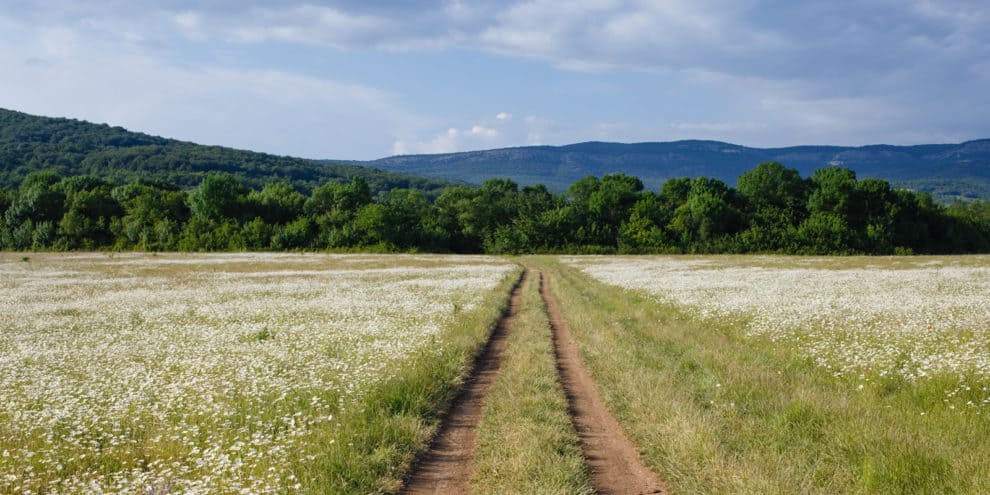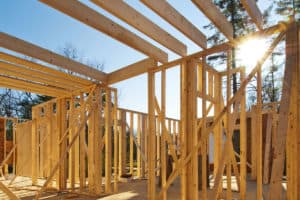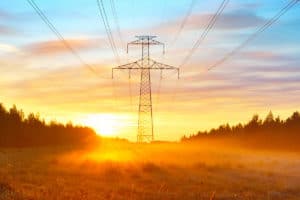“Country roads, take me home” isn’t just the popular lyrics to John Denver’s hit song anymore. As more residents of big cities across America grow tired of the rat race, country living is becoming quite desirable. With the modern day ability to work from home, people are seeking their own little slice of heaven in the country, where they can pursue a self-sustaining lifestyle, raise their families and maybe even live off the land.
Many informative LANDTHINK articles have been written that address common situations land buyers encounter when purchasing farmland, timberland, or other large acreage tracts for investment, hunting and recreation. This article, however, is geared toward land buyers that are on a quest to locate and purchase a smaller parcel of land on which to build their future dream home. Aside from the usual considerations, such as knowing your price range, choosing a buyer’s agent, potential resale value, and due diligence, the evaluation process for land you intend to build on comes with a different set of considerations than other types of land purchases. In this article, I’ll cover some of the not-so-obvious as well as emotional aspects involved in purchasing land that buyers should keep in mind when beginning their search for a dream piece of property for their future home, be it a primary residence or a second home.
If you’re just beginning your search for a homesite on Internet land listing sites such as LOTFLIP, which is devoted to land under 20 acres, or if you’ve wisely secured the services of an experienced land agent, keep these tips in mind when looking for a future building site.
Never purchase sight unseen. Buying land to build on is an emotional decision. Being a REALTOR® and land agent since 2005, I’ve been involved in numerous real estate transactions where buyers purchased a future homesite without ever stepping foot on the land. Walk each parcel, pin to pin, and involve all members of the family. Reconsider purchasing without the presence of a spouse, partner, or other decision maker. Buying land is one of the biggest decisions you’ll make in a lifetime, it should never be purchased on impulse.
Location, Location, Location. We’ve all heard it, but where you decide to build your home will greatly influence the life of you and your family. Ask yourself the following questions:
- How far are you willing to commute to work? If you’re not retired, and don’t have the luxury of working from home, take into consideration how much of your day will be spent on the road. With ever-rising gas prices, the cost of commuting could take its toll on your wallet.
- What do you like to do for fun? This is a question I always ask my clients who are unfamiliar with the area in which they are inquiring about purchasing a homesite. Make sure the area you choose will offer you the opportunity to participate in the types of recreational activities that you and the family enjoy.
- Does the area accommodate any specialized needs or services you or a family member requires? As a REALTOR® who got started in the real estate business selling homesites for major developers, I’ve seen this factor be the deal-breaker on more than one occasion. Medical, educational and other special needs must be addressed; otherwise building in the location, even if everything else about it is perfect, would be completely impractical.
- What is the proximity to family and friends? Life is filled with inevitable and momentous events- births, graduations, weddings- factor in the distance you’re putting between you and the most important people in your life.
Envision your dream homestead. Take time to write down property characteristics you want in a homesite and present this list to your land agent. It’s important for your agent to know what you can and can’t live without. How much property do you need to build the size home that you desire? Do you want close neighbors or total seclusion? Do you desire waterfront property, rolling or flat terrain? Do you plan to have a garden, orchard or animals? Do you like trees or streams? Is there room for a pool? Knowing exactly what you want will not only ensure the property meets your goals and objectives, it will also be significant in determining the building envelope for your future home.
Invite your builder along to evaluate your top selections. A homebuilder can help determine the building envelope and even suggest home plans that are best suited for the topography of the land. I‘ve sold waterfront lots on Lake Guntersville in Alabama that many clients, upon first look, thought would be impossible to build upon. With the guidance of an experienced, reputable homebuilder, buyers are capable of building a beautiful home on land that, at first glance, can appear as adverse terrain. If the property is in a subdivision, is there an Architectural Review Board? What are the Covenants and Restrictions? Reading an entire copy of a subdivision’s Covenants and Restrictions can seem like torture, but it’s very important that you have a clear understanding of the neighborhood rules. If you have any questions, write them down and consult a real estate attorney. Also, remember to ask about the annual HOA dues, and what you get for payment of your dues. If the community is gated and the roads are not maintained by the county, major developers will sometimes have an escrow account devoted to repaving or repair of roads.
This list of things to keep in mind when buying a future homesite is not intended to be the only list of questions that should be asked when making a land purchase. Buying land is a complex transaction and I recommend buyers secure the services of an experienced land agent. A land agent can determine the answers to additional and very important questions such as:
Is the land guaranteed buildable? (meaning that the lot has passed a percolation test). Is a septic system allowed or does the neighborhood tie into a public water and sewer system?
Is the land in a flood zone? What is the approximate cost of flood insurance in the area? Usually, residents of gated communities cannot apply to FEMA for cleanup after a major disaster.
Is there access to utilities? If the lot is in a neighborhood, is the infrastructure and amenities in place? If all amenities are not complete, is the project bonded by the developer to ensure that all promises made by the developer to buyers will be completed within a reasonable time frame? In the current distressed real estate market, in which many developers are underwater, this is a wise question to ask.
If the homesite you’re considering is not located in a neighborhood, what is the property zoned? What are the property taxes?
Finding the homesite that suits your needs can take time and perseverance, but having an agent to guide you through every step of the buying process will help ensure that your ultimate decision will be one that brings years of happiness and enjoyment to your entire family.
This content may not be used or reproduced in any manner whatsoever, in part or in whole, without written permission of LANDTHINK. Use of this content without permission is a violation of federal copyright law. The articles, posts, comments, opinions and information provided by LANDTHINK are for informational and research purposes only and DOES NOT substitute or coincide with the advice of an attorney, accountant, real estate broker or any other licensed real estate professional. LANDTHINK strongly advises visitors and readers to seek their own professional guidance and advice related to buying, investing in or selling real estate.










I heard this weekend about a couple from South Florida who bought 100+ acres in middle Georgia, built their dream home and were living happily ever after. That is until the husband started having sinus problems from pollen. It got so severe that his doctors told him the only cure was to move back to Florida. So his dream home is now for sale.
…That is unfortunate about the couple having to move to another state and sell their dream home over allergies… Anyway the article was full of excellent points about evaluating land to build a home-site on. In my opinion unless there is something serious holding you back like town guidelines or some type of a permit problem any parcel of land can be transformed into your dream home-site. All it takes is a vision, determination, and…MONEY! Without the proper funding certain projects can turn sour quickly.
Make a list of the outdoor activities you desire, then speak with an expert in each of those areas. Growing trees? of course you want to consult a forester. Looking for waterfront? Aquatic Biologists like us can help you evaluate property. People always conduct a home inspection; wise people inspect the land.